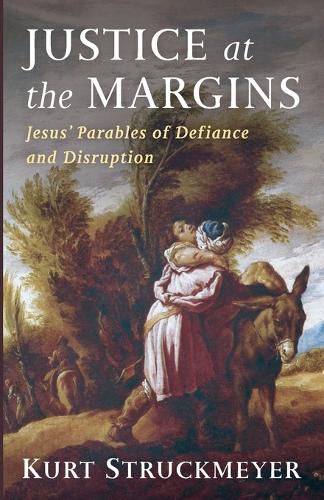Readings Newsletter
Become a Readings Member to make your shopping experience even easier.
Sign in or sign up for free!
You’re not far away from qualifying for FREE standard shipping within Australia
You’ve qualified for FREE standard shipping within Australia
The cart is loading…






This title is printed to order. This book may have been self-published. If so, we cannot guarantee the quality of the content. In the main most books will have gone through the editing process however some may not. We therefore suggest that you be aware of this before ordering this book. If in doubt check either the author or publisher’s details as we are unable to accept any returns unless they are faulty. Please contact us if you have any questions.
Jesus was a teacher. One of the key tools of his teaching was storytelling. Through vivid parables of mustard seeds, leaven, wayward children, poor widows, rich men, and day laborers, Jesus helps us imagine the kingdom of God. The parables of Jesus were well-conceived and artfully structured traps. They invite the listener into a simple story or comparison. They get the listener comfortable with the familiar territory of the scene. Then the parable switches everything around and frustrates the expectations of the listener. The parables of Jesus were intended to show his listeners that the way the kingdom of God operates is not what we expect. They challenge comfortable beliefs and conventional wisdom about wealth and poverty, about holiness and sinfulness, about good people and bad, and about purity and corruption. Previously, Kurt Struckmeyer accepted many of the conventional interpretations of the parables, that they were about miraculous growth or grace or prayer or humility. Now he is convinced that the parables are about upsetting the social order, confronting racism, disturbing the status quo, and behaving shamelessly in the pursuit of justice. These are parables of shock, scandal, resistance, disruption, and defiance for people living on the margins of society.
$9.00 standard shipping within Australia
FREE standard shipping within Australia for orders over $100.00
Express & International shipping calculated at checkout
This title is printed to order. This book may have been self-published. If so, we cannot guarantee the quality of the content. In the main most books will have gone through the editing process however some may not. We therefore suggest that you be aware of this before ordering this book. If in doubt check either the author or publisher’s details as we are unable to accept any returns unless they are faulty. Please contact us if you have any questions.
Jesus was a teacher. One of the key tools of his teaching was storytelling. Through vivid parables of mustard seeds, leaven, wayward children, poor widows, rich men, and day laborers, Jesus helps us imagine the kingdom of God. The parables of Jesus were well-conceived and artfully structured traps. They invite the listener into a simple story or comparison. They get the listener comfortable with the familiar territory of the scene. Then the parable switches everything around and frustrates the expectations of the listener. The parables of Jesus were intended to show his listeners that the way the kingdom of God operates is not what we expect. They challenge comfortable beliefs and conventional wisdom about wealth and poverty, about holiness and sinfulness, about good people and bad, and about purity and corruption. Previously, Kurt Struckmeyer accepted many of the conventional interpretations of the parables, that they were about miraculous growth or grace or prayer or humility. Now he is convinced that the parables are about upsetting the social order, confronting racism, disturbing the status quo, and behaving shamelessly in the pursuit of justice. These are parables of shock, scandal, resistance, disruption, and defiance for people living on the margins of society.